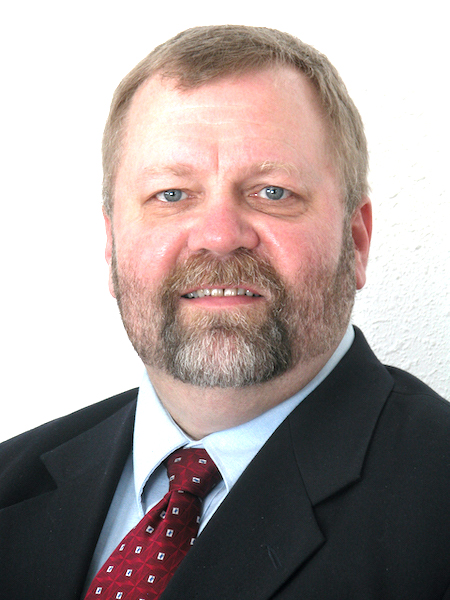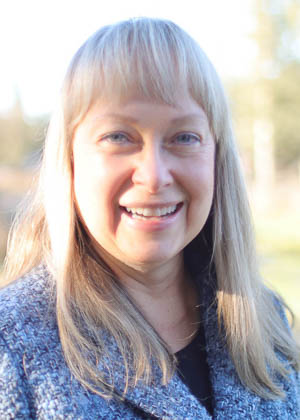Including ... Back to Basics: Avoiding Conflict • President’s Message • Attorney Question • Book Review • Editor's Notebook • About this Journal
Get eJournal PDF: click here
Back to Basics: Avoiding Conflict
An Interview with John Farnam
by Gila Hayes
In our Back-to-Basics series, we strive to share the knowledge from our own mentors that formed our thinking when we were new gun owners and introduce the people who taught us to today’s new gun owners. Reality dictates that many of the thousands and thousands of gun owners and concealed carry licensees may never have the opportunity to absorb the wisdom of John Farnam, internalize the teachings of Massad Ayoob, be inspired by Tom Givens, or learn from other luminaries in our self-defense world. It is our goal to share what we can through the written word in our monthly members’ journal.
One of the most beloved firearms instructors to ever influence armed citizens, John Farnam started teaching when he was a young Marine officer in the 1960s, then worked in law enforcement before going on the road as a full-time, itinerant firearms trainer, a career he still continues today. He and his wife Vicki Farnam still travel extensively, visiting ranges around the nation as guest instructors teaching rifle, pistol, emergency medicine and tactics. “It’s a full time job,” Farnam chuckles.
When armed self defense is taught, de-escalation and threat avoidance must lead the curriculum. John Farnam gets even further ahead of possible defensive gun use, teaching students to consider risks before they go to a venue, and drills include voicing polite, but no-nonsense communications to encourage strangers approaching with unknown intent to go find easier prey. If not dissuaded, the ill-intent of the approaching man or woman is clearer and can later be articulated if the armed citizen needs to justify his or her actions.
President’s Message
by Marty Hayes, J.D.
I am writing this message on Thanksgiving Day, so happy Thanksgiving everyone! Or course, beside me is my constant companion, the Network’s “Boots On The Ground” after-hours emergency cell phone. This holiday I am thankful that the phone is not ringing. In fact, it has been over a year since we had a member-involved incident where assistance was requested. This has allowed us to keep building up the Legal Defense Fund and we are now topping 3.6 million dollars!
We are considering a small rate increase to keep up with inflation, which is eating up our operating capital. (The operating budget is separate from the Legal Defense Fund). I have a question for you, members. (If you are not a member, this does not pertain to you.) With the Legal Defense Fund doing as well as it is doing, we are in a position to add services for our members. So here is the question.
What ONE THING would you like to see added to the member benefits? Remember, I cannot read minds, so you have to take a minute and put your thoughts in an e-mail to
Attorney Question of the Month

Recently, there has been considerable discussion about the role of training for armed citizens and whether or not training could be used against the armed citizen in a court of law.
We here at the Network are intimately aware of one such case https://armedcitizensnetwork.org/images/stories/Hickey_Booklet.pdf in which an armed citizen was questioned extensively while on the witness stand about attending several military-centric training courses. Consequently, we asked our affiliated attorneys a couple of questions.
Do you have personal experience with training becoming an issue in court for an armed citizen in a self-defense trial, and if so, what was the outcome?
If a person has a strong training résumé, what steps would you suggest taking to keep their extensive training from creating a negative result in court?
Book Review
Real Heroes:
Inspiring True Stories of Courage, Character, and Conviction
By Lawrence W. Reed
Publisher: Intercollegiate Studies Institute, 2016
ISBN-13: 978-1610171427 Paperback, 6x9, 296 pages, $12.99
https://store.fee.org/collections/best-sellers/products/real-heroes
Reviewed by Gila Hayes
A few months ago, I searched the Internet for a transcript of a speech from which I wanted to quote. I found it on the Foundation for Economic Education’s website. Distracted from the work I was supposed to be doing, I spent a few minutes reading the FEE.org website and found a review that inspired me to order the book Real Heroes, by economist and historian Larry Reed. Through much of October and into November, I was inspired by the short biographies of 40 men and women who, from ancient history to modern times, led freedom’s fight, rose above terrible disadvantages, demonstrated courage, and risked everything to live according to their beliefs.
Editor’s Notebook
Thoughts on Thanksgiving
by Gila Hayes
Be thankful! How odd that in the land of plenty, we need to be reminded to practice gratitude! Emotional blows, losses and defeats tend to blind us to the huge variety of advantages we enjoy as Americans. When a loss or defeat removes an opportunity, numerous other options spread out before us just waiting to be recognized. The secret is keeping the open mind necessary to detect the next opportunity. Feeling thankful is one of the best ways I know to fuel the creative mind that detects the many choices we have.
Thank goodness we have a national holiday to remind us of the power of thankfulness! I doubt I was alone in feeling discouraged in the aftermath of the general election last month. In a political race in which I felt personally invested, a faux-conservative congressional representative was ousted in the primary election, leading to a nasty general election runoff that should have sent a conservative Special Forces veteran to represent my congressional district in the “other Washington.”
About this Journal

The eJournal of the Armed Citizens’ Legal Defense Network, Inc. is published monthly on the Network’s website at http://armedcitizensnetwork.org/our-journal. Content is copyrighted by the Armed Citizens’ Legal Defense Network, Inc.
Do not mistake information presented in this online publication for legal advice; it is not. The Network strives to assure that information published in this journal is both accurate and useful. Reader, it is your responsibility to consult your own attorney to receive professional assurance that this information and your interpretation or understanding of it is accurate, complete and appropriate with respect to your particular situation.


